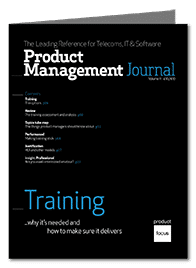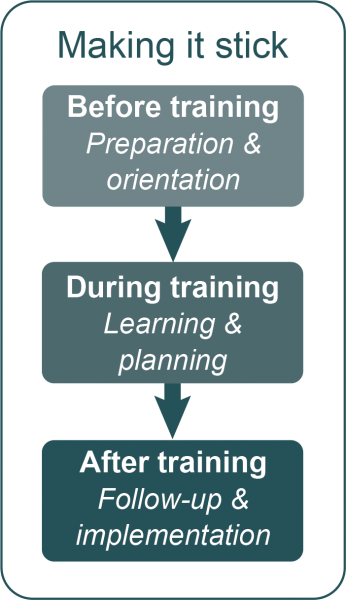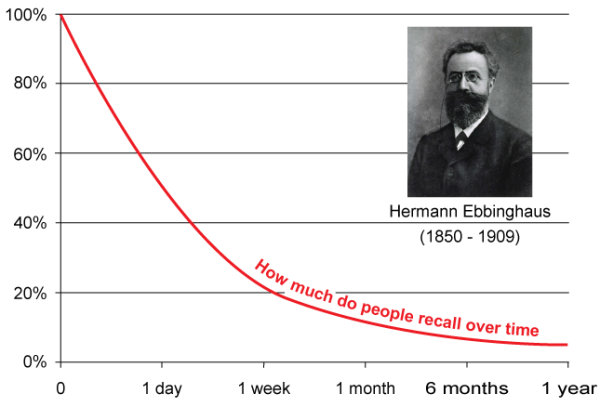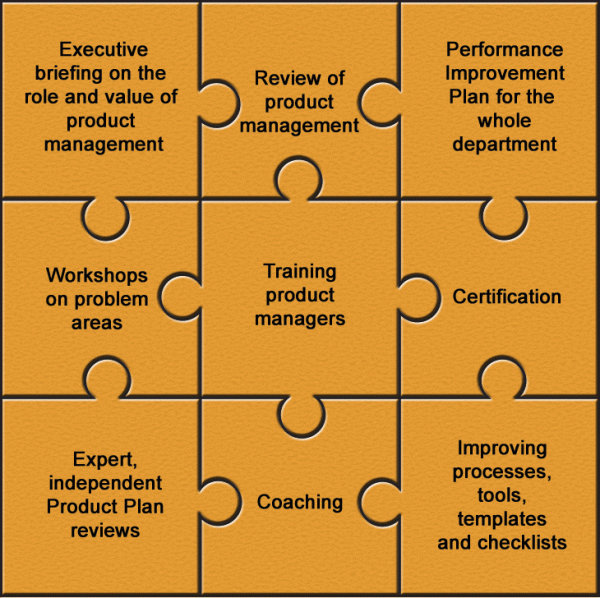One of the most common reasons that companies invest in product management training is to improve performance. And there will almost always be at least a short-term improvement, as a good training course boosts motivation and team spirit. But the ultimate target is the long-term improvement in product managers’ performance.
The challenge for delegates returning to the office is that they often get distracted by a long list of urgent business issues that have accumulated while they have been away. And, their boss may be too busy to ensure they’re implementing the new stuff they’ve learned. A newly motivated delegate can quickly lose focus when they’re back to their inbox.
You can read all the articles in our Product Management Journal – Training by signing up for free here.
So what’s needed?
Any course needs to be a motivational learning experience. But there’s also a need to do preparation before a course, for example, to help design the content for private training or ensure delegates are primed for success. And there’s also important work to be done after a course to ensure learning is applied and continued.
There’s a lot of research into what works best.
Before training
When a company first starts to think about training, they will normally undertake a training needs assessment. The Head of Product Management, sometimes with support from L&D or HR, evaluates the strengths and weaknesses of the team, against the challenges they face. This gap analysis is used in discussion with the training provider to allow them to tailor course material and exercises. Product Focus, like other training companies, has a standard set of questions that help us work through this assessment.
For both public and private courses, delegates need to be primed for success. Managers need to be clear with the delegate on their expectations following the training.
Also, before the course, each delegate should think about why they’re going, what they’re expecting to learn, and what they’re expecting to do better when they get back to the office. Going through the process of working out preferred outcomes gets the delegate in the right frame of mind to learn and helps them look out for the most relevant topics in the training.
During training
A well-designed training course will be effective at transferring knowledge, but a little extra effort from delegates can make a big difference to what they take away. During the course, delegates should regularly reflect on what the key points are, and if they understand them. They should think about how to annotate the notes to remember the material better, and how they can use what they are learning in their role.
And, if there are problems, they should let the trainer know so they can help ensure a good learning experience.
Delegates on all Product Focus’ training are asked to write down what they want to change on their return to the office. This helps delegates focus on what’s important to them (and we remind them after a few weeks to help keep them on track).
After training
On returning from a course, delegates should use their post-course ‘high’ to create an action plan to be shared with their boss of what they plan to change. The plan should have well-defined objectives, perhaps with 30-60-90 day milestones, so it mixes urgent and longer-term changes.
Research has consistently shown that skills transfer works best when delegates have the opportunity to practice their newly acquired skills. So, delegates should seek opportunities to use their new skills, for example, by modifying (if needed) and using the checklists and templates from the course. Running an internal workshop on some of the key insights picked up on the course can be a great way to embed knowledge as can training other people on some of the skills that have been learned.
A coaching arrangement often proves useful to help establish plans, develop skills, and achieve progress against business goals.
Certification
A further approach that is very effective is to complete a certification exam. But, timing is key. Research has shown that completing an exam immediately after the training isn’t the best way for delegates to retain what they’ve learned. It’s far better to take an exam sometime after the course has finished. This allows time for the learning to sink in, and the revision is an effective way to counter the memory loss shown by the Ebbinghaus forgetting curve.
A tough exam based on resolving realistic scenarios a week or two after the end of a course forces delegates to revise their notes gives practice in using new skills and helps embed what’s been learned.
Continual improvement
While training is a key piece of the jigsaw, other activities are needed to maintain the momentum of performance improvements. For example, a Performance Improvement Plan for the whole department, coaching, and workshops. There may be in-house resources and the capacity to undertake some of the activities, while others will need to be outsourced to independent experts.
Conclusion
Training is an investment in both time and money. So it’s worth spending a little extra effort to make it count and to make it stick.





